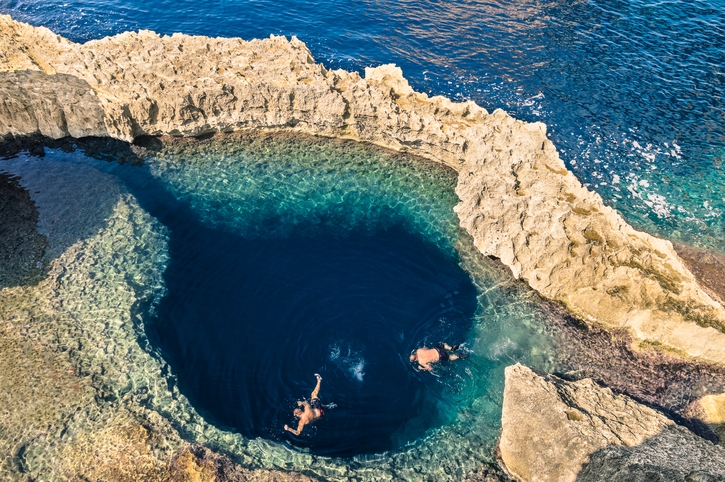
TEFL in Malta: an interview with a teacher who is teaching on the islands
Have you ever considered teaching in Malta?
These beautiful islands located midway between Sicily and North Africa are steeped in history, evidence of which add to the delightful holiday experience awaiting thousands of tourists yearly. To find out more we interviewed a British teacher from Maltalingua School of English who has lived and taught there for over 11 years. During a tour of their school, located in the vibrant district of Saint Julian’s Bay, we discussed some of the most common questions raised about life for TEFL teachers on these fascinating islands.
1. What drew you to Malta?
Having been a bank manager for many years, and travelling abroad in my free time, I realised there was more to life, so I quit my job and was employed by Thomson Holidays on the islands. I fell in love with the place and later I used my transferable skills to gain a teaching position.
2. Malta is a very popular destination with holiday makers – can you tell me what draws people here?
Malta has something for everyone: lovely warm weather for about 9 months, beautiful beaches, a fascinating history and plenty of different activities such as scuba diving. Also the Maltese have an excellent level of English and a delicious cuisine.
3. What are the challenges of teaching and living on the island?
Unfortunately it’s about finding the balance – not everyone is offered a contract and so teachers have to budget. I think that saving funds from the busy summer months of teaching helps to keep yourself going through the quieter winter time.
4. What aspects of teaching in Malta do you really enjoy?
Apart from meeting so many different people, I like seeing how the students’ progress - following their journey to a better fluency in English. Like many people of my generation from the UK, I wasn’t taught grammar at school so I focused a lot on what I found difficult and was therefore able to make the learning experience easier for my students.
5. May I ask if a TEFL teacher’s salary in Malta is sufficient for you to enjoy a comfortable standard of living?
It is, but it can depend a lot on who you work for and the number of hours you are willing to work. Your finances go further if you share an apartment, especially one further out of the main areas in Malta. To help teachers settle in and find their feet, Maltalingua helps new teachers by providing accommodation for up to eight weeks at a standard rate.
6. When you go home to the UK, what do you miss about Malta?
I usually miss the weather, the lifestyle and Kinnie [a local soft drink]! I also miss the cuisine, especially the fish and vegetable dishes.
7. Where are your favourite places in the country?
There are many nice places in Malta however my favourite places are Mdina [the old capital city which is used as a set for many a period drama], Rabat, Valletta [the lively capital and the European Capital of Culture in 2018], and Xlendi [a small fishing village on the island of Gozo].
8. Do you have any hints on how to save money when living in Malta?
I’d suggest that people share an apartment, buy a local bus card called ‘Tallinja’ [similar to the Oyster card in London] and buy locally – at the famers’ markets and local stalls.
9. It’s a relatively small island so does that mean that TEFL jobs rarely come up?
There are many language schools in Malta, which advertise plenty of jobs prior to the peak summer season. However these jobs go quickly. In the winter there are fewer teaching opportunities, but this again can depend a lot on the school.
10. What event or course do you feel has really helped your career along?
A few years ago, a position as Director of Studies (DoS) came up at a new school and they paid for me to do a DELTA. Nowadays, teachers are required to undergo CPD (Continuing Professional Development) in order to have their teaching permits renewed. Maltalingua is keen to help teachers both financially and with time off to take various courses.
There’s more information on Malta in teflhub’s TEFL World page:. To find out more about this charming school (warm, friendly, professional, with a few unusual features: it’s not often that I’ve been to a school with chandeliers in the classrooms and a swimming pool)
Visit: http://www.maltalingua.com/
Return to blog